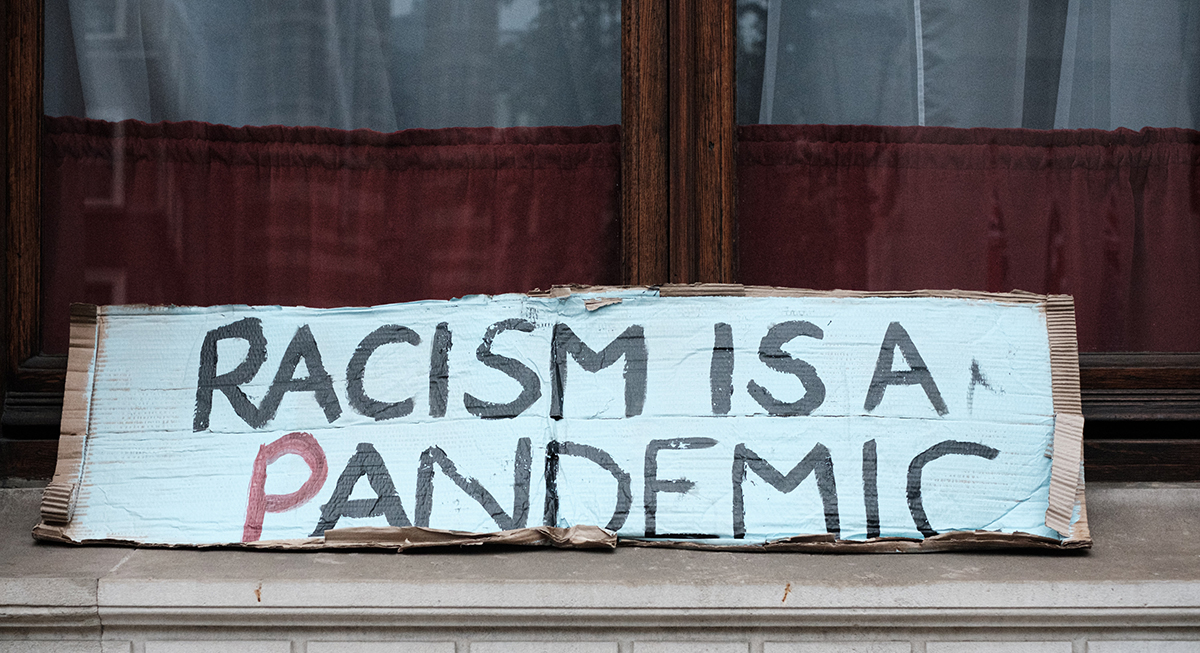What BLM can teach us about racism in Canada
The Black Lives Matter (BLM) movement has been sweeping the globe. It has prompted an outpouring of support from people online, and has even sparked multiple demonstrations not just in the U.S. but also in Canada, like the ones in Abbotsford, Chilliwack, and Vancouver two Fridays ago.
Abbotsford is not immune to racism. This has been an ongoing problem in our town for a while, but manifested itself in a disgusting reality last week when an Abbotsford woman tweeted out that she “couldn’t sleep” and had to go around town in a rage and pull down all the BLM posters. This is possibly the same person who desecrated the memorial left for George Floyd under the downtown Abbotsford Christmas tree.
While there are obvious acts of racism rearing their heads in response to BLM, other people are starting to critically examine what internalized and institutionalized racism looks like in their communities. Along with this, the notion that Canada is less racist than the States is being critically examined; no, that’s putting it lightly — it’s being ripped wide open and exposed for what it is. We are a nation built on racism.
The reality is, yes, Canada had black slaves; yes, Canada segregated black communities; yes, Canada’s police unfairly target black Canadians; and yes, there is a wealth gap between black Canadians and non-visible minorities.
***The Tyee reported that despite making up only eight per cent of the population in Toronto, black people made up 37 per cent of victims killed in police encounters. Knowing the facts is one thing, but understanding underlying implicitly racist attitudes or biases is where the work for white people lies, because it is not always obvious. When we grow up with a narrative, that narrative becomes internalized, and it takes work to dismantle it. We need to be doing this work even after this movement ends. We also need to be critically examining all of our biased assumptions about race.
Black and Indigenous people are riding the same wavelength here: police discrimination, income gaps, historical segregation, and slavery. When the Indigenous-led “Shut Down Canada” movement was in full force in February, the arguments against it were always centered around what some people had to give up because of it, such as lost wages, and so-called “development.” But in the process the actual heart of the movement, the fact that this was a movement about Indigneous lives, was being ignored even as it was being shouted out by Indigneous people nationwide. People argued its legitimacy. Now is the time to re-examine this movement, and re-examine what racism looks like in Canada.
Canadians need to stand up against all institutionalized racism. Black lives matter. Indigenous lives matter. No lives matter until these lives can exist without being consistently threatened by the institutions established by and for white people. Let that sink in. More importantly, listen to the marginalized voices when they tell you they are being threatened and traumatized; non-victims do not get to decide if this is legitimate or not.
What I hope comes out of this movement is a more critical examination of how and what institutionalized and systemic racism looks like and more people willing to stand up to it all the time. In Canada, it’s both the same as and different than in America. Check on your Indigenous and black neighbours, know their politics, know their struggles, and don’t forget about all this when BLM stops trending.
Darien Johnsen is a UFV alumni who obtained her Bachelor of Arts degree with double extended minors in Global Development Studies and Sociology in 2020. She started writing for The Cascade in 2018, taking on the role of features editor shortly after. She’s passionate about justice, sustainable development, and education.


